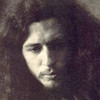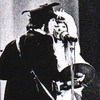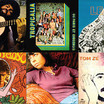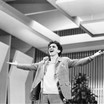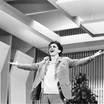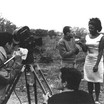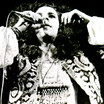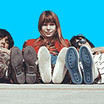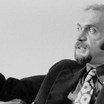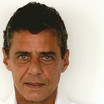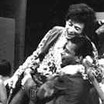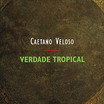Ruídos pulsativos
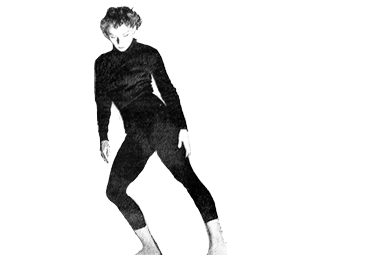
Avant-Garde na Bahia
After the establishment of the Music Seminary, in 1954 the Universidade Federal da Bahia – UFBA (Federal University of Bahia) founded two new art schools. The Theater School was founded at UFBA in 1956, the same year as the School of Dance, the first of its kind at university level in Brazil, and an integral part of the reforms carried out by the rector Edgard Dantos. Its appearance marked a rupture with classical ballet as the great reference for Brazilian dance.
Due to being a new school, linked to the project for renewal and cultural progress at UFBA in the period, its teachers had as their principle commitment the application of new research and ideas from European artistic vanguards. Its two principal directors and teachers were Yanka Rudska from Poland and Rolf Gelewski from Germany. As with Koellreuter in music, Edgard Santos had brought over two more European teachers, whose visions and proposals in relation to dance were oriented toward an opening to the new and the inventive, and a rupture with the classical.
Both Yanka and Rolf had had the German dancer and choreographer Mary Wigman as their teacher – one of the principal representatives of the expressionist tendency in dance, and an enthusiast of free dance. Contrary to the conventional and standardized techniques of classical ballet, Wigman valorized the dancer’s emotions. Free and improvised movements were transformed into rhythmic and expressive series, usually accompanied by just a percussion instrument. Despite their similar origins, in their work each teacher brought new approaches to the dance scene in Bahia and in Brazil. The presence of two professionals coming directly from the European avant-garde radically transformed contemporary Bahian dance.
Yanka Rudska was invited to become director of the Dance School, a position she held from 1956 to 1958. Her teaching methods and her work brought a more subjective and expressionist vein to the discipline. During her time in Bahia, she was open to local dance and musicality, incorporating into some of her work movements and choreography inspired by Candomblé.
Her replacement, the ballet dancer Rolf Gelewski, would bring other influences, linked more to the idea of contemporariness in the arts. Coming from a period of seven years as solo dancer and teacher at the Berlin Metropolitan Ballet, Rolf Gelewski gave continuity to Yanka’s activities of renewal. Between 1960 and 1975, he was Director of the Dance School and head of the Department of Artistic Integration and Education. Away from the stage, he was also a dance theoretician. Rolf not only published educational articles and essays, but also founded in the school a pioneering chair on the Philosophy of Dance.
In 1965, Rolf was the founder and choreographer of the Grupo de Dança Contemporânea (GDC) (Contemporary Dance Group), active for many years on the Brazilian dance scene. A direct result of the pioneering work of Yanka Rudska, the GDC and other projects carried out by Rolf Gelewski kept the innovative and provocative nature of the UFBA Dance School alive for future generations.





